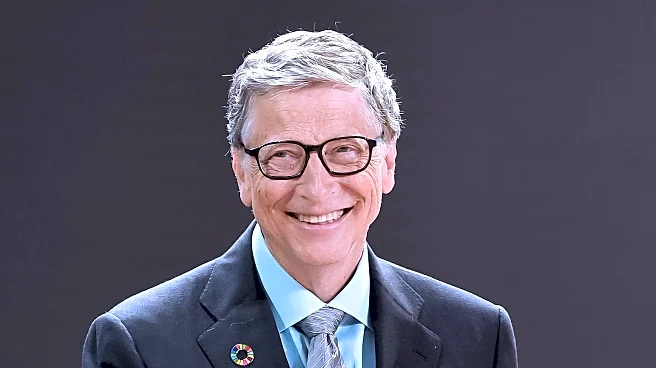What's Happening?
The Global Polio Eradication Initiative (GPEI) is a collaborative effort involving Rotary International, UNICEF, the U.S. Centers for Disease Control and Prevention (CDC), the World Health Organization (WHO), the Gates Foundation, and governments worldwide.
The initiative aims to eradicate polio by immunizing over 2.5 billion children in 122 countries. Gavi, the Vaccine Alliance, plays a crucial role by using innovative finance mechanisms to secure sustainable funding and ensure an adequate supply of quality vaccines. Rotary members contribute by building awareness, fundraising, and encouraging government support for polio eradication efforts.
Why It's Important?
The partnership is essential for achieving global polio eradication, as it combines resources and expertise from various organizations to tackle the disease effectively. The Gates Foundation's financial contributions, matched by donations to End Polio Now, provide significant funding for vaccine development, surveillance, and outbreak response. Rotary's grassroots efforts help mobilize communities and governments to support immunization campaigns. The initiative's success would prevent polio from spreading and causing paralysis in children worldwide, demonstrating the power of global collaboration in addressing public health challenges.
What's Next?
The GPEI will continue to focus on reaching unvaccinated children, particularly in regions where polio remains endemic, such as Pakistan and Afghanistan. Efforts will include enhancing surveillance systems to detect and respond to outbreaks promptly. The initiative will also work to overcome challenges such as conflict, insecurity, and health system disruptions that hinder vaccination efforts. Stakeholders, including governments and health organizations, are expected to support these efforts to achieve the goal of a polio-free world.
Beyond the Headlines
The initiative highlights the importance of addressing vaccine hesitancy and misinformation, which can hinder immunization efforts. It also underscores the need for sustainable health systems that can withstand disruptions like those caused by the COVID-19 pandemic. The campaign's success could set a precedent for future global health initiatives, demonstrating the power of collaboration and innovation in overcoming public health challenges.















